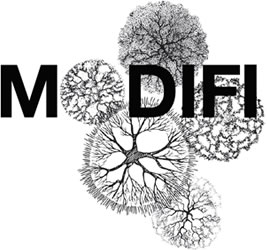En la ciudad se puede vivir, pero además, como evidencia el perfil urbanístico moderno del siglo XIX, se puede ser observado. Esto sólo es posible si se posee cierto instinto para reconocer las diferencias entre lo que es forjarse una forma de vida propia frente a los proyectos de vida preformulados, entre el conformismo y la diferenciación, entre lo privado y lo público. Se requiere por tanto formas de percepción específicas para distinguir entre el espacio urbano público y su mediatización.
Así, la ciudad es una metáfora de la actuación política. Porque es un lugar en el que algo puede cambiar. En ella las utopías encuentran su lugar en el desarrollo general y las transformaciones se perciben inmediatamente.
La ciudad se contempla como un amplio espacio político-cultural que es algo más que un espacio de protección social, de consumo o de alta cultura. La política de la ciudad se presenta en el escenario de la opinión pública como un espacio de conflictos vividos y de participación política. Pero la política de la ciudad es al mismo tiempo un espacio que podría parecer indefenso ante los peligros de una "cultura de escenario", de una mediatización por el city-marketing y las políticas de desarrollo urbano, que determinan perfiles urbanos conservadores, folclorísticos, turísticos, hegemónicos y de política de la seguridad.
¿A quién pertenece la ciudad, si cualquier opción de configurarla con la participación de los ciudadanos se somete al dictado de la eficiencia y la producción de valor añadido y que rara vez beneficia a los vecinos críticos e impone el conformismo? ¿En qué se reconoce una política cultural que fomenta la falta de relaciones sociales, mermando así claramente la influencia política del individuo? ¿Qué escollos estorban a una política cultural contemporánea y provocan interesados golpes de timón?
Ulrich Schötker |
 |
In der Stadt kann man leben, aber - so zeigte das moderne Stadtbild des 19. Jahrhunderts - sich auch sehen lassen. Dies erscheint aber nur möglich, wenn man ein Gespür für die Unterschiede zwischen Selbstgestaltung des Lebens und vorformulierter Lebensentwürfe hat, zwischen Konformität und Anders- oder Fremdheit, oder die Unterschiede zwischen privat und öffentlich erkennen kann. Es bedarf besonderer Wahrnehmungsformen, um zwischen dem städtischen öffentlichen Raum und seiner Mediatisierung unterscheiden zu können.
Die Stadt ist damit eine Methapher politischen Wirkens. Als ein Ort, an dem man etwas verändern kann. Hier lassen sich Utopien in die Entwicklung einschreiben und Veränderungen lassen sich unmittelbar erfahren.
Zu dieser Veranstaltung wird die Stadt als ein umfassender kulturpolitischen Raum betrachtet, der mehr ist als Wohlfahrts-, Konsum-, oder Hochkulturraum. Die Politik der Stadt zeigt sich an dem Raum gelebter Konflikte sowie politischer Teilhabe auf der Bühne der Öffentlichkeit. Die Politik der Stadt ist damit aber zugleich ein Raum der vielleicht schutzlos den Gefahren einer "Bühnenkultur" ausgesetzt wäre, einer Mediatisierung durch City-Marketing und Standortpolitik welche konservative, folkloristische, touristische, hegemoniale und sicherheitspolitische Stadtbilder festschreibt.
Wem gehört die Stadt, wenn jede Gestaltungsoption bürgerlicher Beteiligung einem Diktat der Effizienz und Mehrwert-Produktion unterworfen wird, die eher selten den kritischen Anwohnern zu Gute kommt und Konformität einfordert? Woran erkennt man eine Kulturpolitik, welche soziale Beziehungslosigkeit fördert und damit politische Wirksamkeit des Individuums deutlich zurückstellt? Welche Verwerfungen irritieren eine zeitgenössische Kulturpolitik und bewirken ein interessiertes Gegensteuern?
.
Ulrich Schötker |
 |
You can live in the city, but you can also, as evidenced by the Modernist urban planning profile of the 19th Century, be under surveillance in the city. This is only possible if one has a certain instinct to identify the differences between forging a life of one's own as opposed to pre-formulated life projects, between conformism and differentiation, between the private and the public. Therefore, it takes specific forms of perception to distinguish between public urban space and its mediation.
Thus, the city is a metaphor of political action, since it is a place where something can change. In the city, utopias find their place in the general development, and transformations become instantly visible.
The city is contemplated as a wide political-cultural space which is more than a space of social protection, of consumption or of high art. City policies are presented on the public opinion stage as a space of experienced conflicts, and a space of political participation. But, at the same time, city policies are also a space which could appear defenceless in the face of the dangers of "the culture of the spectacle", of being mediated by city-marketing , and urban development policies, which determine conservative, folkloric, touristic, and security-focused urban profiles.
Who does the city belong to, if any option to configure it through citizen participation is submitted to the dictatorship of efficiency and the production of added value, rarely benefits critical neighbours, and imposes conformism? How can we qualify a cultural policy which fosters the lack of social relations, thus clearly eroding the political influence of the individual? What obstacles are there in the path of a contemporary cultural policy and cause interest-driven U-turns?
Ulrich Schötker
|



